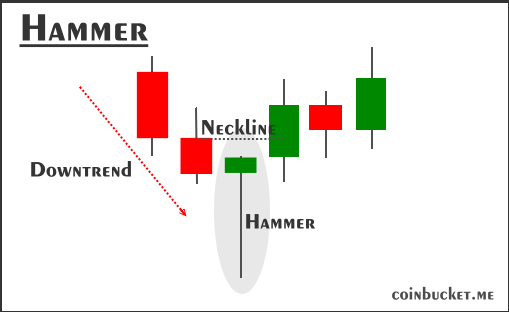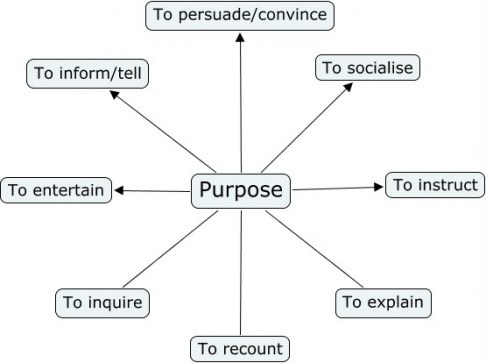Tuesday, August 24th, 2021

Tracking and accounting your tenant’s security deposits can easily be done in the Landlord Studio software. If you keep part or all of the security deposit, that amount should be reported as rental income on the date it was withheld. The amount withheld, once used to pay for the repairs or other damage caused by the tenant, should then be reported as an expense in your Schedule E under the appropriate category. A common question about security deposit accounting is whether a security deposit is considered rental income.
It may cover more than one month’s rental fee depending on the contract. Security deposit is the amount that the company paid to landlord or home seller to show the commitment to rent or purchase the property. The landlord demand a security deposit to ensure that tenant informed in advance before leaving. Moreover, it is also the cash to settle with property damage caused by tenants during leasing. They will keep the deposit as compensation to repair the property at the end of rental contract.
Security Deposit: Definition, Primary Purpose, and Example
On 30 Sep 202X+1, the company needs to reverse the security deposit to rental income as the lessee stopped making payment. The company makes journal entries by debiting a security deposit of $ 500 and credit rental income $ 500. Security deposits are typically reported on the balance sheet as a current asset. This is because of the fact that they represent funds held to secure property or services, and they are expected to be returned after certain contractual obligations have been met. It is also important to keep detailed records of all transactions related to security deposit accounting. This includes tracking incoming and outgoing funds, including any returns or refunds necessary upon tenant move-out.
It’s difficult to accurately budget when the purchasing power of the dollar is low and interest rates are high. You’ll know exactly what your CD will be worth when it expires, allowing you to better prepare for that eventuality. This is particularly helpful for those considering a CD as a way to build an emergency fund. Deposit $5,000 now and get $5,250 — or more, if you can open an account with a higher interest rate than 5%.
A few states also require the landlord to disclose the location of the security deposit to the tenant. Some states have rules about paying interest on a security deposit as well. Check local regulations for how long you have to return security deposits after tenants move out.
When a security deposit is returned to a tenant, the funds are paid from the bank account used to hold the security deposit. For example, assume the Smith Family pays their landlord a $2,000 security deposit for their single-family rental home in Texas. Having a separate account also makes it easier to track the accrued interest. Also, some states have requirements about whether an account (escrow or otherwise) holding security deposits must bear interest. The security deposit is a refundable deposit tenant’s give landlords before moving into a property.
Which States Require Landlords to Hold Security Deposits in an Account?
At the end of the contract, the company needs to debit rental expense of $ 1,000 and credit the security deposit of $ 1,000. Security deposit will be zero, as we have used it to settle rental expenses for the last three months. Similar to previous month, we need to reclass the security deposit to rental expense as we still use the rental service but we do not make any payment.
Some cities also have rules regarding when and how a security deposit must be returned. Even if you have an accountant or general tax software, rental property taxes can be complex. Fortunately, there is banking software that can greatly marginal cost formula and calculation simplify your taxes and make tax season simple. A security deposit is an amount of money that’s paid to secure the use of property or services. Please let me know if you have follow-up questions or concerns with security deposits.

If your lease contract allows it, the landlord can keep your deposit to cover any financial losses or damage they incur as a result of your actions. BTW, @ShiellaGraceA ‘s advice will not work because it will reduce your security deposit liability account with a corresponding increase to A/P. Doing it that way won’t allow you to book the expense from your vendor for the repair. Be sure that whatever you decide to do, based on your state laws, you follow the rules so you’re not left in a bad spot when you try and keep security deposit funds due to damages.
Start With a Property You Own
Depending on what happens during the tenant’s time at the property, the tenant will receive all, some, or even none of the security deposit back when they move out. In some states, the landlord must also give the tenant any interest earned on the security deposit money. As noted above, CDs are currently offering much higher interest rates than they were just a few years ago. In fact, they’re https://online-accounting.net/ one of the top options available now, as they tend to have slightly higher rates than high-yield savings accounts. It’s possible to find an account with rates of 5% or higher — with no fees — just by shopping around for lenders. While you may be able to secure a good rate with a bank with a physical location, you’ll most likely earn the most interest by using an online bank or lender.
- Security deposits that are meant to be returned to tenants are not treated as rental income, with a couple of exceptions.
- He has worked as an accountant and consultant for more than 25 years and has built financial models for all types of industries.
- If they damaged the property and it is not “normal use” where you need to actually pay for it, then I would Invoice them for the repairs.
- Riley Adams is a licensed CPA who worked at Google as a Senior Financial Analyst overseeing advertising incentive programs for the company’s largest advertising partners and agencies.
- In some cases, companies may also have manufacturing plants or factories.
Rather than deal with the human error of spreadsheets, choose a financial institution that provides financial tracking and reporting. That means the program should track your cash flow, give you insights into your expenses, generate your cash-on-cash return reports, and more. Preferably, your online rent collection app or provider has the option for tenants to make automatic monthly rent payments—that will help cut down on late rent. Automatic payments reduce stress for tenants and cut down on time landlords waste hunting down rent. And like with most aspects of renting out property, there are rules and regulations concerning security deposits.
Key takeaways on Escrow Accounts for Security Deposits
This added level of security can be especially helpful for those struggling to save money in today’s inflationary economy. Start by exploring CD interest rates here to see how much more interest you could be earning. We may receive commissions from some links to products on this page. For example, noting the security trust you have placed the deposit with. Cam Merritt is a writer and editor specializing in business, personal finance and home design. In this case, the amount should be recognized as income by the receiver.
Wealthfront vs. Merrill Guided Investing: Which Should You Choose? – Investopedia
Wealthfront vs. Merrill Guided Investing: Which Should You Choose?.
Posted: Tue, 05 Sep 2023 14:17:51 GMT [source]
In other words, in absence of interest income, the second party in the lease contract may have to deposit more funds. To learn if your state has a security deposit statute, check out your tenant rights information supplied by the U.S. If you’re applying for a business bank account, you typically will need to provide a federal Employer Identification Number (EIN) and other basic information about your company. Tenants will also enjoy the convenience of Baselane, which allows residents to easily pay each month’s rent online. The Social Security Administration disburses its checks in multiple rounds throughout the month, so yours could be coming at another time, depending on your birth date. We’ll help you find out when your Social Security payment should arrive and tell you how your payment date is determined.
Interest in Security Deposits
Both of these IAS rules deal with financial assets and liabilities. However, a security deposit must meet the criteria of a financial asset or financial liability to be recognized under IAS 32 or IAS 39. Security deposits are generally considered non-current assets, as they are expected to be held for more than one year. Security deposits from customers are classified as Refundable Deposits, while security deposits from suppliers are listed under Accrued Expenses or Other Current Liabilities.
Essential Security Deposit Info For Rental Property Purchasers … – Mondaq News Alerts
Essential Security Deposit Info For Rental Property Purchasers ….
Posted: Mon, 21 Aug 2023 07:00:00 GMT [source]
When a tenant hands you their security deposit, it’s your responsibility as their landlord to keep it safe. Once you have inspected their apartment before moving out, only then can you determine if you’ll return it in full or keep a portion of it due to damages. If a security deposit is non-refundable, the company doesn’t carry it on the balance sheet at all. The company that pays such a deposit would simply record it as an expense, while the company that receives it would book it as revenue.
The amount can be equal to, less than, or even more than one month’s worth of rent; some states limit the maximum sum, so be aware of your state’s rules. Your landlord may require a separate security deposit to cover any potential pet-related damage if you have pets. Security deposits give landlords a measure of financial reassurance in the event that you break the lease, have to be evicted, or damage the property.
Posted in Uncategorized | No Comments »
Wednesday, August 11th, 2021

Appreciation is one of the major metrics of your portfolio’s success. This is a simple way of looking at portfolio performance and how appreciation factors in, of course, but it’s a fundamental way to approach your investment decisions at a high level. Even if you don’t dive into the details of appreciation rates for your investments, it’s helpful to have a sense of what to expect if you include them in your portfolio. The better you can anticipate asset appreciation, the better you can forecast what your investments will do for you. Appreciating assets are assets that are typically held for more than one year because they are known to increase over time.
It is important to note the difference between capital appreciation and capital gains. By following these tips, you can increase your chances of achieving your investment goals through capital appreciation. In stock valuation, capital appreciation typically refers to the growth in the principal amount invested. Capital appreciation refers to an increase in the market value of an asset. This occurs when the market price for an asset is higher than what the investor originally paid for. The assumption is that, by the time the bond matures, the district’s tax base will have expanded enough to allow it to pay the lump sum of principal and interest.

It is how much the value of an investment has increased compared to its original value used for tax purposes (this is called a “cost basis”). Your total capital appreciation is, then, the amount of money you would pay taxes on if you sold the asset today. Capital appreciation only refers to changes in an investment’s price. Most notably, appreciation does not account for any income generated by an asset, such as dividends or interest payments. You can measure an asset’s capital appreciation by the difference between its current price and its purchase price.
Capital Appreciation vs. Capital Gain
In investing parlance, appreciation is the increase in an asset’s value over time. For example, a certificate of deposit (CD) offers interest over time. This is reflected as a percentage of the money you put into the CD, and gets paid out with the original amount you put into the CD when the account matures. If you buy a stock at a $15 share price and its share price increases to $20, your investment has appreciated by $5. In this example the amount of appreciation depends on when you sell the asset, since share prices fluctuate.

Numerous capital appreciation funds are available across the investment market. BlackRock’s Capital Appreciation Fund offers management from one of the largest investment managers in the world. When properly used, CABs can provide funding for local governments that are growing rapidly — those that know capital appreciation meaning their tax bases will increase, thus allowing them to handle greater future costs. CABs can be a very expensive form of borrowing, however, leaving large debts to accrue in the decades to come. Both the risks and advantages of CABs should be considered when determining the best option for funding.
Many people try speculating in the stock market with the goal of getting rich, and the vast majority fail at doing so. If you want to try your hand, make sure you are using money you can afford to lose, without putting your livelihood or retirement funds at risk. It’s easy to get a false sense of confidence after initial success, so thoroughly understand the real possibilities of losing your investment. If you use the capital appreciation strategy, you are not too concerned with day-to-day fluctuations. However, keep a close eye on the fundamentals of the company for changes that could affect long-term growth.
Whatever the reason, the owner of the asset in question will be showing a capital gain on their acquisition. Ahead of this being written into the company’s accounts and so becoming public knowledge, the gain could make the company a target for takeover by asset strippers. Appreciation is basically when an asset gains in value over time. The asset in question can be a share, bond or commodity or it can be a physical asset such as real estate.
Limits on CABs
Bonds issued by states, cities, counties and
other governmental entities are collectively
called municipal bonds. Most municipal bonds pay
interest on a semiannual basis, at the same rate
over their entire term. They usually offer
investors income that is exempt from federal
income taxes. It is also important to remember that capital appreciation is not the only goal of investing. Other important goals include income generation and preservation of capital. When investing for capital appreciation, it is important to balance the desire for growth with the need to protect your investment from losses.
- As a result, capital appreciation funds are considered most appropriate for risk-tolerant investors.
- To understand the difference between traditional bonds and CABs, consider a district seeking $100 million with a 30-year maturity and a 3 percent interest rate.
- The assumption is that, by the time the bond matures, the district’s tax base will have expanded enough to allow it to pay the lump sum of principal and interest.
- Options strategies like covered calls have income objectives built around large, long-term stock positions.
Farmland prices have risen per decade and continue to show signs of growth. This means your investment in farmland is likely well-suited to grow in value over time. How, when, and why assets appreciate (or depreciate), however, differs across the board, meaning each has its own impact on your portfolio. Here’s what you need to know about appreciation, capital gains, and the best investments for appreciation over time.
Asset
The difference between more traditional bonds
and CABs primarily concerns the timing of interest
repayment. With a conventional bond, the issuer
pays accrued interest on the principal in
installments until the debt is retired. With a
capital appreciation bond, interest payments are
not required for the duration of the bond. At
maturity, the issuer must pay the entire principal
plus years of compounded interest. The avoidance of
interest payments until maturity thus results in
much higher interest costs. To understand the difference between traditional bonds and CABs, consider a district seeking $100 million with a 30-year maturity and a 3 percent interest rate.

If an investor buys a stock for $10 per share, for example, and the stock price rises to $12, the investor has earned $2 in capital appreciation. When the investor sells the stock, the $2 earned becomes a capital gain. Other assets increase in value steadily over a longer period of time. These investments serve as a hedge against stock market volatility and can generate returns consistently. If you own any investments, capital appreciation is probably your goal. Capital appreciation occurs when an investment asset gains value as reflected by its market price.
Understanding Capital Appreciation
When investing for capital appreciation, it is important to choose investments that are appropriate for your risk tolerance and investment goals. If you are not comfortable with risk, you may want to consider investing in assets that are less likely to fluctuate in value, such as bonds or real estate. However, if you are willing to take on more risk, you may be able to achieve higher returns by investing in assets that have the potential for greater capital appreciation, such as stocks. If you’re investing for short-term returns, you’ll want to consider assets that appreciate quickly. If you’re more interested in a long-term investment, you may want to opt for a steadily appreciating asset to help you generate the returns you’re looking for.
Capital appreciation funds are a good option for investors willing to take on some additional risks for the potential benefit of above-average market returns. Investment strategies can range broadly across the fund category; however, most funds are primarily invested in a mix of value and aggressive growth stocks. These funds are generally more moderate in their investment holdings than aggressive growth stock funds, investing for both long- and short-term gains with growth and value. These funds can be a good fit for moderate investors seeking equity market allocations since they usually invest from a broad market equity universe. They can also provide consistent exposure to the equity markets with steady capital appreciation over time. Therefore, they can be a good long-term core holding for a moderate-to-aggressive portion of an investment portfolio.
What is capital appreciation? Definition and examples
For Forney ISD — and many other Texas school districts experiencing similarly rapid enrollment growth — coping with the influx of new students is difficult at best. That’s because they have many years to recover from any losses that may occur due to market changes or downturns. When it comes to investing, there are four main investment objectives that cover how you accomplish most financial goals. While certain products and methods may work for one objective, they may produce poor results for the others.
- In this case it’s possible to pay a different price than the current market value, leading to different capital appreciation calculations.
- The value of real estate such as a house can increase because of proximity to new developments such as schools or shopping centers.
- Numerous capital appreciation funds are available across the investment market.
- The value of shares and ETFs bought through a share dealing account can fall as well as rise, which could mean getting back less than you originally put in.
- BlackRock’s Capital Appreciation Fund offers management from one of the largest investment managers in the world.
Capital gains refers to the amount of money you’ve made on an investment that you’ve withdrawn from. If you sell a stock worth $20 per share that you bought for $10 a share a year ago, you’ve made $10 in capital gains. Depending on what you do with the money, you may have to pay income tax on capital gains, since the value of your investment turned into cash.
Appreciation can be caused by a number of factors, like economic growth or changes in interest rates. If a company’s growth is faster than that of similar companies or at a quicker rate than expected, then stock prices can increase and lead to appreciation as well. In most situations all three of these formats will lead to the same results. For example, it’s possible to buy a piece of property for a different price than its assessed tax value. Or you might buy a security in a direct transaction, rather than through a centralized market like the New York Stock Exchange. In this case it’s possible to pay a different price than the current market value, leading to different capital appreciation calculations.
Horizon Technology Finance Announces Monthly Distributions for … – PR Newswire
Horizon Technology Finance Announces Monthly Distributions for ….
Posted: Tue, 01 Aug 2023 20:20:00 GMT [source]
Appreciation is the unrealized value that your investment has accrued. It is the amount that your investment has grown in value while you are holding it. Gordon Scott has been an active investor and technical analyst or 20+ years.
Posted in Uncategorized | No Comments »




